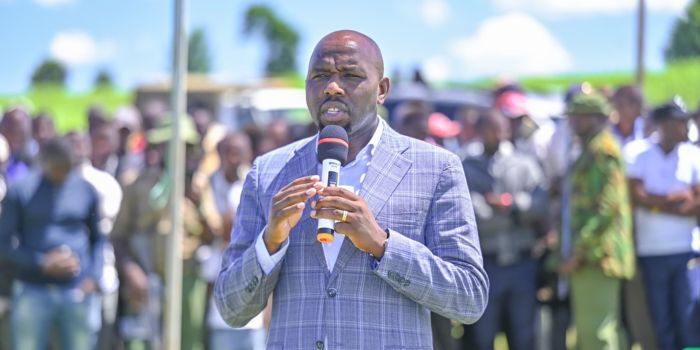Kisumu Senator Prof. Tom Ojienda has raised alarm over ongoing demolitions in Korando-Tiengre and other parts of Kisumu County, allegedly linked to road expansion projects by the national government.
Speaking on the floor of the Senate on Wednesday, July 10, S Ojienda requested a formal statement from the Senate Standing Committee on Roads, Transportation, and Housing, seeking clarification on the legal basis for the demolitions.
“The Committee must explain the legal authority under which these demolitions are taking place,” he said, questioning whether residents received prior notice or were consulted through public participation, as required by law.
He also demanded clarification on the land status in the affected areas, asking whether the demolitions were being carried out on public, private, or community land.
Ojienda pressed the Senator Eddy Gicheru-led committee to determine whether there are any plans in place to compensate or resettle displaced families.
“The Committee must tell this House which entities or government agencies are responsible for the demolitions, and whether they are acting under any formal directive or legal mandate,” Ojienda added.
In a separate statement, the Kisumu legislator turned attention to the implementation of the Competency-Based Curriculum (CBC) in marginalised counties.
He sought another response from the Senate Standing Committee on Education, led by Senator Betty Montet, on the rollout, access, and quality of CBC in less developed regions.
“The schools in marginalised counties are facing a lot of challenges in effectively implementing CBC,” he noted, citing issues such as inadequate infrastructure, limited learning materials, unprepared teachers, and poor community awareness.
Ojienda urged the Committee to investigate the government’s efforts to support teachers through training and provide CBC-specific materials, particularly in areas where schools lack basic facilities.
He further called for details on the measures taken by the State Department for Basic Education to ensure equitable access to CBC for all learners—especially girls, children with disabilities, and other vulnerable groups.










